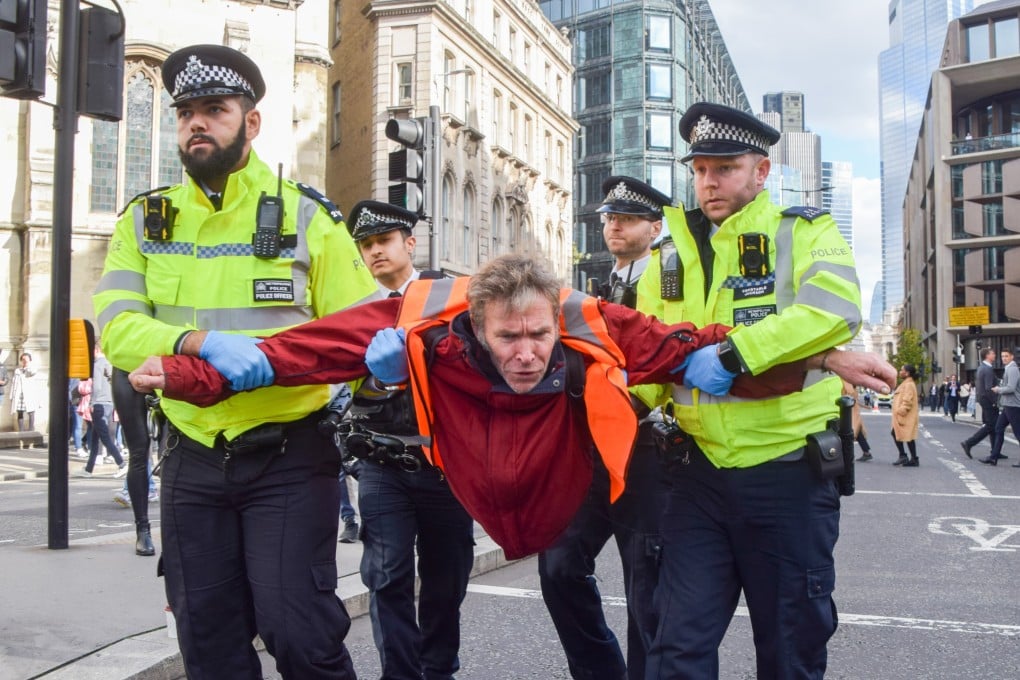Public Order Bill: Britain to get tougher on disruptive protests, activists fear new powers
- UK government eyes harsher sentences and new criminal offences for some types of protests
- Activist group in Britain is warning of ‘deeply authoritarian powers’ in the hands of authorities

Activists and a journalists association in Britain are warning that proposed public order laws could give the UK government and police greater powers to restrict protests and media freedoms.
Britain’s government insists it is not anti-protest, and that it has public backing to introduce tougher measures and new criminal offences against a “small minority” of protesters who use “guerilla” tactics to block roads, transport and other infrastructures.
The Public Order Bill, which is now being studied in the UK parliament’s House of Lords, gives police a raft of new powers to deal with protesters in England and Wales, such as those from Just Stop Oil.
These include the authority to stop and search anyone they suspect of intending to take part in a disruptive protest, and to lock down entire areas should one occur.
Courts will also be able to serve demonstrators with new “Serious Disruption Prevention Orders” (SDPO), similar those used for common criminals whereby a subject can be electronically tagged, even if they have not committed an offence.
Campaigners say the SDPO would also prevent subjects from associating with named people.